Glasgow 2019 Head to Head: The Results
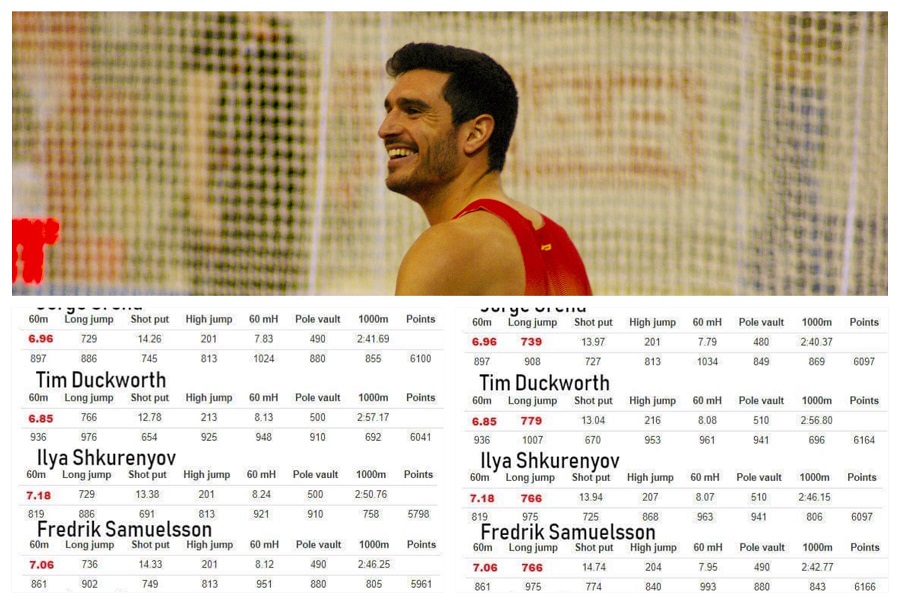
In a wet and windy Glasgow, the new European Indoor Champion Jorge Ureña was crowned on Sunday night. Home favourite Tim Duckworth won his first senior international medal in silver and Ilya Shkurenyov took bronze. But following our Head to Head previews, how did the competition unfold, and how accurate was the Decathlonpedia forecast tool?
The Medallists
Well, the medallists competing from 2015 and 2017 were also the medallists in 2019. Ureña and Shkurenyov came through the competition unscathed. After a scintillating hurdles PB of 7.78 seconds, Jorge sat at the top of the leaderboard and stayed there until the end, while Ilya slowly worked his way up the points table, into bronze position after the pole vault.
The World Leaders
Thomas Van der Plaetsen was not in a position to approach his pre-competition world lead score, under par in most of his events, but surely takes a lot of confidence into the outdoor season. On the other hand, a delighted Andreas Bechmann came within 16 points of his world lead from January, setting a further two PBs in the long and high jumps. He was overjoyed to finish fifth among his competitors, who until that point were idols he had watched only as a spectator.
The NCAA Rivals
Injury robbed us of enjoying the full Karl-Robert Saluri experience - he was faster than ever in the 60m, setting a Championship record and only 0.03 short of Erki Nool’s European heptathlon best from 1999, but unfortunately withdrew ahead of the high jump. On the other hand, the Glasgow crowd was treated to a nail-biting performance from Tim Duckworth. After a terrible warm-up in the pole vault and a modest hurdles, he surprised everyone by improving his 1000m time by seven seconds and fighting to keep hold of the silver medal, never dropping lower than third in position throughout the competition.
In the Footsteps of Giants
Both Zhuk and Sykora came close to disaster. Despite setting a few new personal marks – including a monster 16.32 in the shot - Vitaliy’s efforts were frustrated in the long jump, where after two no-jumps, he had to settle for a safe 6.55 to stay in the competition. From a position of seventh after the hurdles, Sykora’s misfortune came in his first vault, where he landed awkwardly and was stretchered off painstakingly by the medical crew. Happily, the injury looked much worse than it was and Jiri completed the heptathlon later in the day.
The 6000 Points-Busters
Two of the season’s 6000 points-busters were going really well until they had to withdraw from the competition. Both Basile Rolnin and Janek Õiglane were climbing up the points tables, and both delivered huge improvements in the shot. Basile retired ahead of the hurdles, while Janek gave us one of the most dramatic moments of the heptathlon - his left leg sliced open on the landing from his second vault at 5.00m, and ending the day with an impressive set of stitches. Luckily no permanent damage seem to be incurred.
Battle of the Vikings
Arguably the most compelling journeys in the competition belonged to our Vikings, Martin Roe and Fredrik Samuelsson. Following an inspired set of jumps across the two days, Fredrik was only 13 points behind Ilya in fourth place going into the 1000 metres and fought heroically to take out the pace and make up the points. Roe’s competition took a hit – literally – in the high jump where, having been in the lead after the shot, his head collided with the upright on his final attempt at 1.96 and he left the arena, bloodied, to receive treatment. He was back in sparkling form next morning though – knocking out a 60 hurdles PB like nothing had happened.
But how did the competition compare to the forecasts of the Decathlonpedia predictor? Well, it called the top four pretty much correctly after the 60m.
Above you can see the forecast for the top four after the 60m and long jump.
Ureña’s 6.96 was enough to hang the gold medal around his neck on the forecast, based on his recent pattern of competition through the disciplines. It correctly placed Tim Duckworth second, just with Shkurenyov and Samuelsson switched around from their ultimate final positions. After the long jump, the forecast adapted to acknowledge Tim being near his indoor long jump PB, and kept him at the top end of the table, but predicted scores for the next three events higher than he actually achieved - frustrations he expressed in interviews after the event. In the end, the forecast was thwarted only by Duckworth’s massive improvement in the 1000m. On the other hand, Fredrik performed better in the jumps than predicted and lower on the track - suggesting some great performances to come when we move outdoors. The forecaster is now going into heavy training for the outdoor season, aiming to be a little less optimistic on hurdles and the 1500m.
Well done to all the competitors on an exciting heptathlon, speedy recovery to those with injuries, and congratulations to our medallists!
Photo: James Rhodes
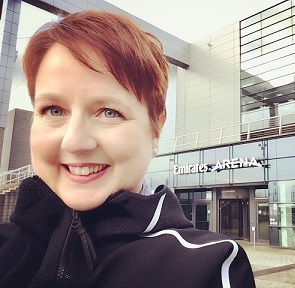
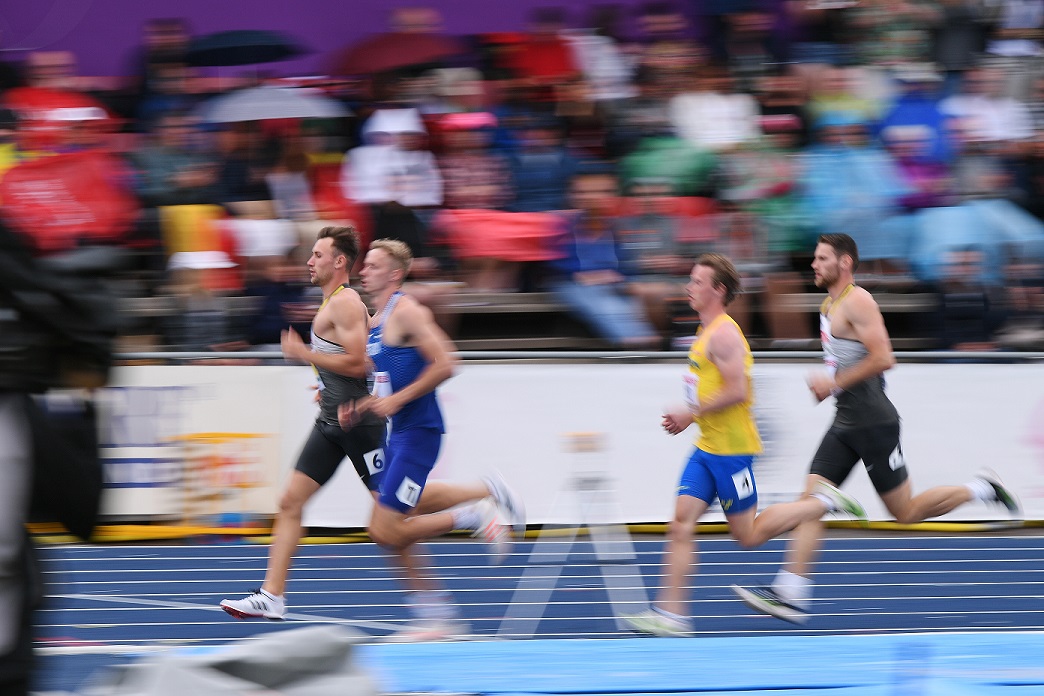
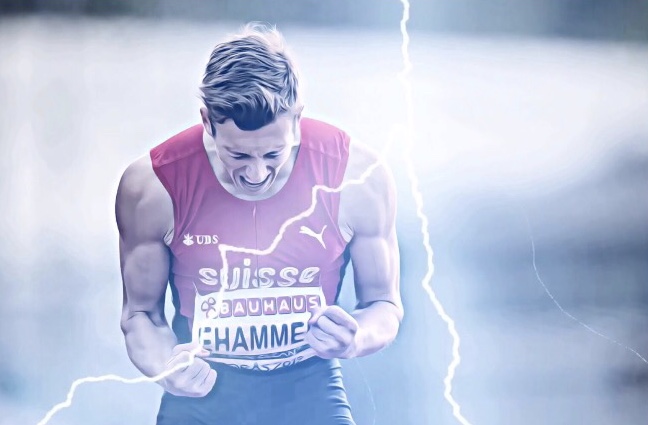

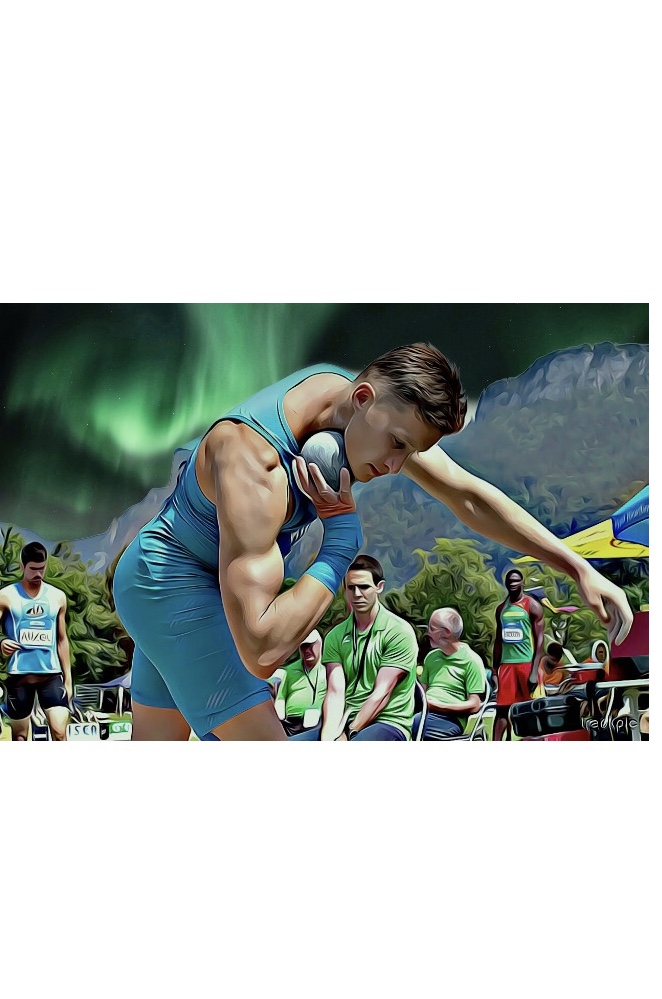
Comments